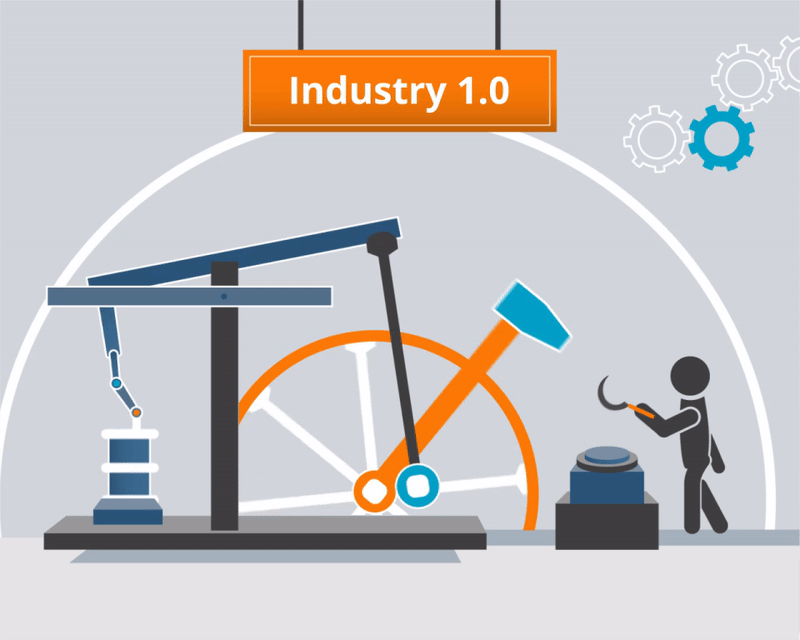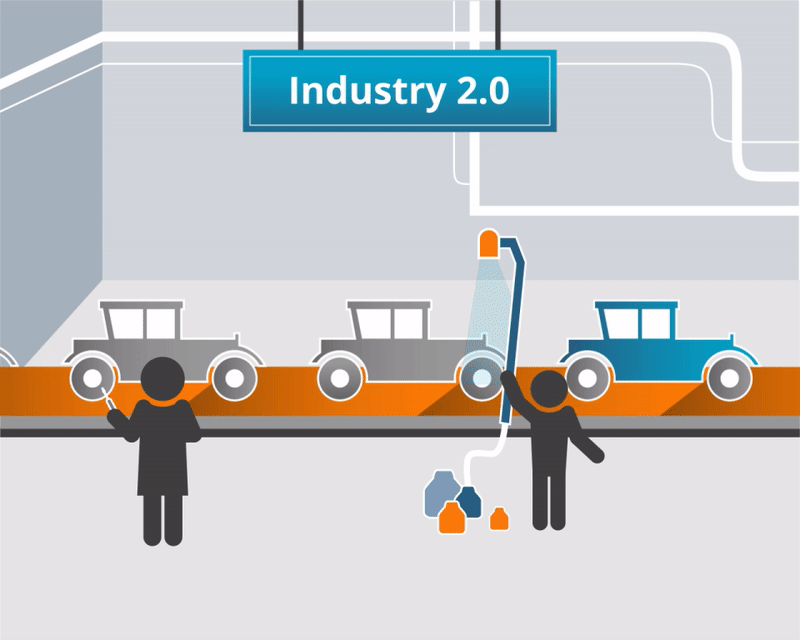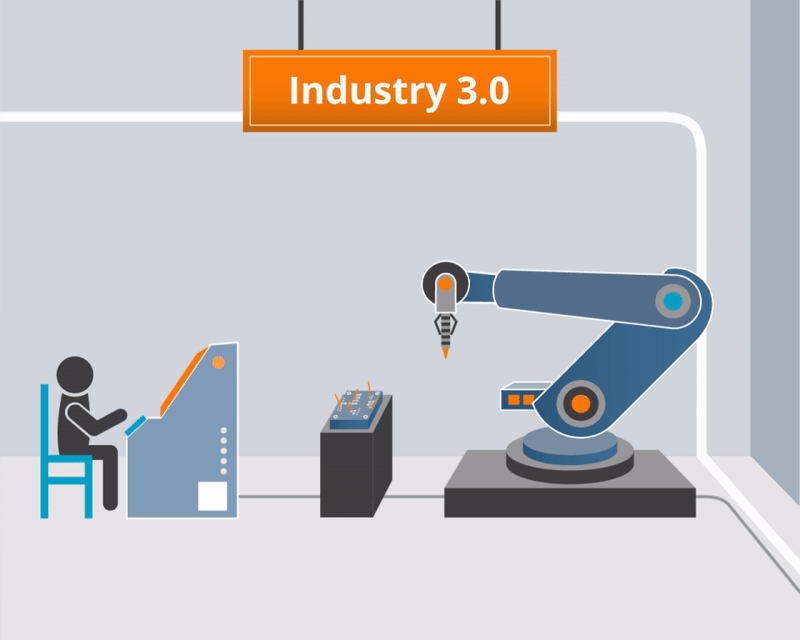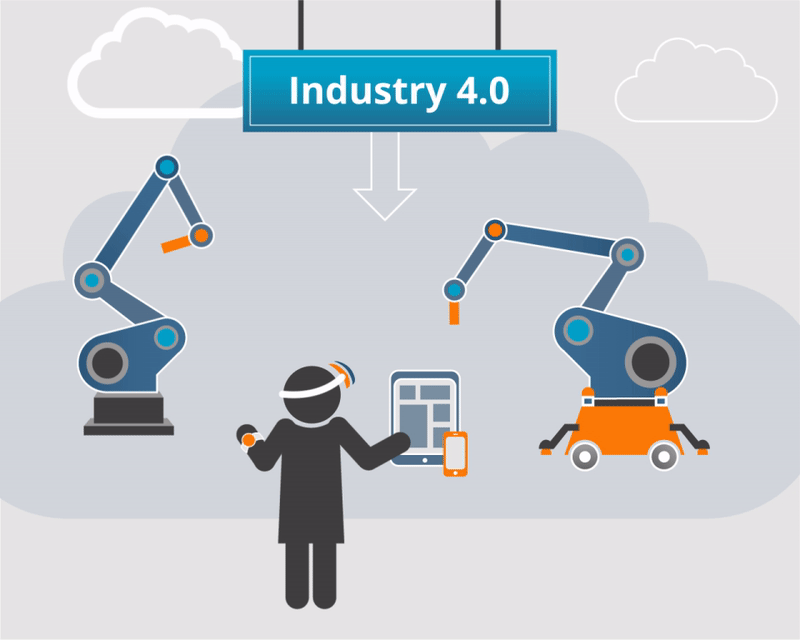Fourth Industrial Revolution




The fourth industrial revolution will fundamentally alter humans thinking process, living standard and working environment. Its scale, scope and complexity will not be like anything humankind has ever experienced before. The INDUSTRY 4.0 is the fourth time human beings have started using advancing technology to find solutions to problems that were previously unsolvable. It started in 1700 when we encountered first industrial revolution, this is when humans started taking advantage of steam power to run machinery. This led them to complete their task in much lesser time and minimise manpower.
At this time, the machineries such as spinning jenny were being used in the clothing manufacturing industry. The mechanisation was also observed to be happening at a faster pace. The second industrial revolution occurred when electricity was being used as a medium to power machinery. This led an increase in the production rate of household and commercial facilities. The third revolution is also called as the computer revolution; it is when human started to use computing power to solve problems. The fourth industrial revolution is defined as the culmination of emerging technologies such as AI, machine learning, IOT, 3D printing, education, virtual reality and augmented reality.
By examining information from automation and machines, we can acquire bits of knowledge into the wellbeing and execution of modern establishments, enabling us to upgrade their activity to expand uptime, speed and yield. Many creative organizations are making these advancements a stride further and utilizing them to create new higher value based models.
With recent advances in AI, we are presently ready to envisage autonomous activities, where machines and even whole offices can run themselves. Over that, achievements in biotechnology, nanotechnology and quantum processing are enabling us to control the world on ever littler scales, even at subatomic levels, and bringing innovations into our bodies, which may eventually change us.
The fundamental difference between past revolutions and the Fourth is the pace of progress – breakthroughs are happening at an unprecedented rate and the scale of interruption is changed at an accelerating speed.
What 4.0 implies for business?
In a current study that measure businesses and government readiness for Industry 4.0, Deloitte* surveyed 1,600 C-level administrators in 19 nations. The participants were sure about that Fourth Industrial Revolution will impact positively– 87 percent of people trust it will prompt more noteworthy equity and security, and 75% said business would have significantly more impact than governments and different elements in molding this future. In any case, just 14 percent of respondents are sure that the businesses are completely prepared to harness the changes related to technological revolution.
The Deloitte contemplate demonstrated that companies which are using Industry 4.0 advances are for the most part doing as such to make their tasks more productive and financially savvy, as opposed to seeking after new plans of action that can conceivably convey substantially deliver a greater value and help to prepare for future. To some extent, this approach mirrors the trouble of putting forth a business in cutting edge advanced technology.
Transforming information into insight
As its most essential level, the Fourth Industrial Revolution lays on unstructured information – heaps of it. The expansion of low cost sensors and progressive falls in the cost of PC power imply that information can now be effortlessly and efficiently accumulated from basically any gadget, from household apparatuses to the biggest mechanical machines. The value lies in the knowledge we get from it by applying our decades of industrial expertise acquired from our installed base.
In the Fourth Industrial Revolution, profitability and execution depend progressively on intelligence. In the event that you know ahead of time when a robot or a machine will separate, you can intercede pre-emptively to turn away an interruption in your inventory network, sparing tremendous measures of cash and keeping your clients happy.
Industrial organizations that put resources into digital technologies are not just accomplishing altogether higher uptime, speed and yield; they are laying the groundwork for advance technologies such as artificial intelligence . Being digitally empowered – which implies having your machines, robots and frameworks feeding information to the cloud – is a entry ticket into the Fourth Industrial Revolution.
From robotization to independent tasks
The fourth industrial revolution is bringing together physical, digital and biological systems to change how we see the world. The fourth industrial revolution will focus primilarily on maximising human well being. The progression in automation technology will enable different economic models and decouple growth from result constraints. One of the main features of fourth industrial revolution is that it does not change what we are doing but it changes us.
Stay updated :
Participate on our social stream.
